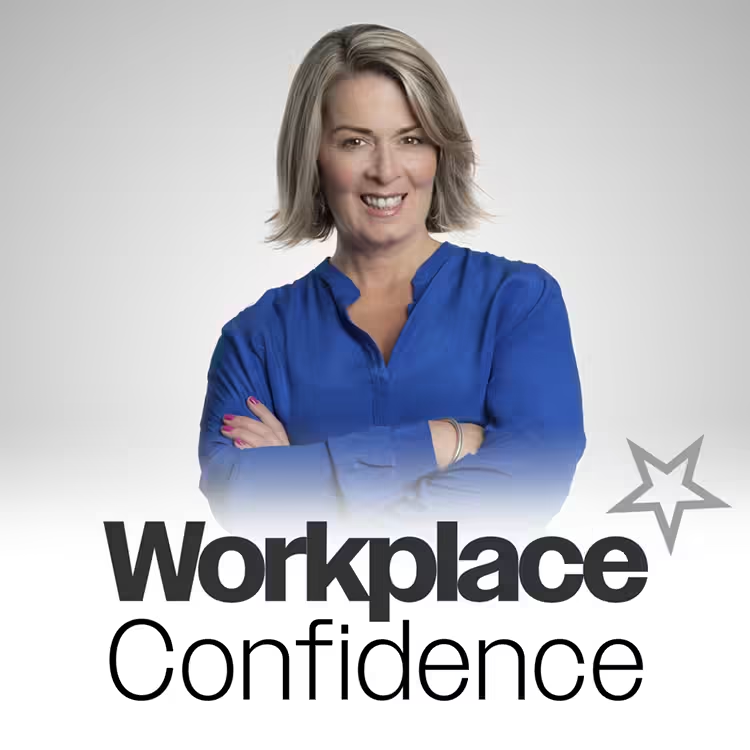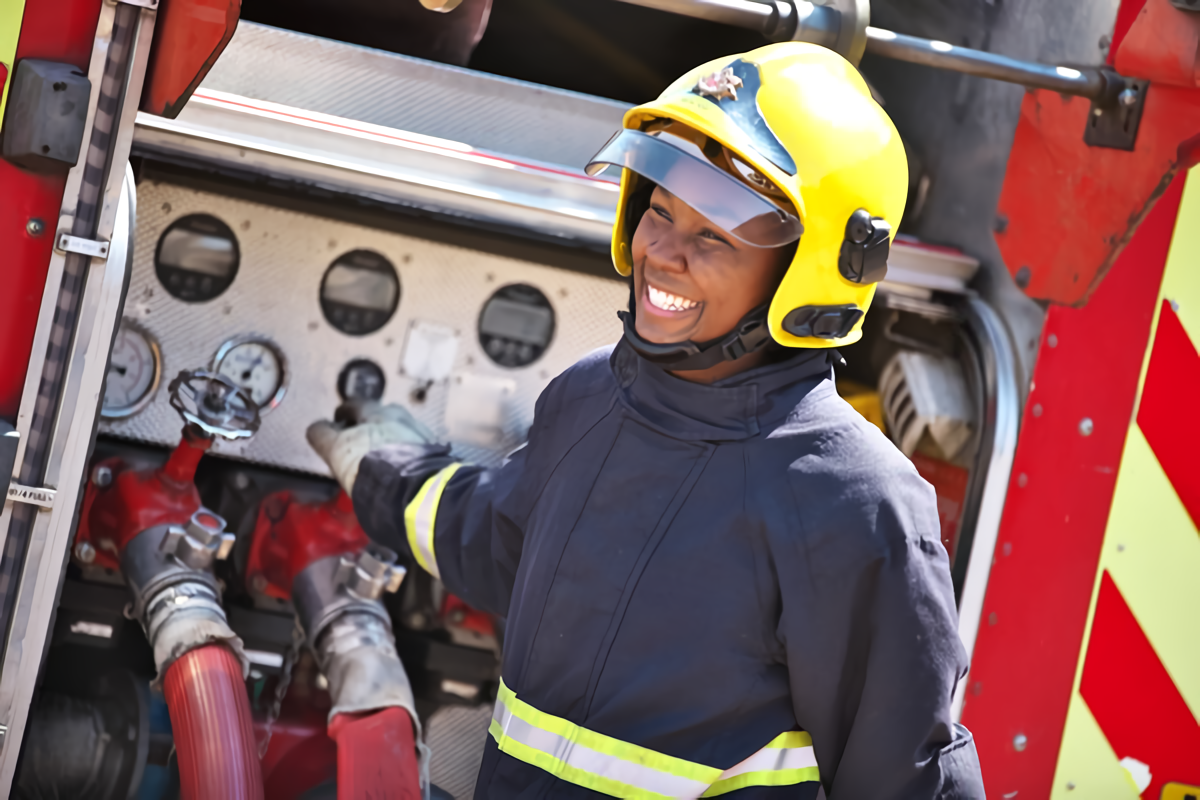
Tackling the gender pay gap and promoting well-being at the NFU – Catherine Cooper
Episode 7: Workplace Confidence Podcast
Where people professionals share the great work they doIn this episode Catherine Cooper, Director of People at the National Farmers Union, who is on a mission to foster inclusivity and tackle the gender pay gap at NFU. Catherine brings her passion for people and culture to the forefront, sharing her strategies for supporting employees and members through challenging times like Brexit, COVID-19, and the war in Ukraine.
Listen now
Building a resilient, inclusive workplace
In this episode, I sit down with Catherine Cooper, NFU’s Director of People and Culture, to dive into the challenges, strategies, and inspiring work she’s doing to build a resilient, inclusive and connected workplace.
If you’ve ever wondered how to foster inclusion, tackle imposter syndrome or just make everyone feel part of the team, you’ll want to listen!
Overcoming workplace challenges
Catherine shares the many challenges her team faces. NFU’s work isn’t just about supporting farmers; it’s about navigating global issues including Brexit, Covid and the Ukraine war – all of which have directly impacted her colleagues.
She explains how these events have created a deeply committed workplace, where everyone feels a responsibility to support NFU members. And yes, mental health and wellbeing take centre stage, with the NFU making a conscious effort to support its people through initiatives like Mental Health Awareness Day. In Catherine’s words, “It’s about supporting our people through difficult times.”
A mission for inclusion and diversity
When it comes to inclusion and diversity, Catherine doesn’t hold back. She’s got big ambitions for making NFU a place where everyone feels they belong. She’s even got a team of “inclusion champions” who help celebrate diversity with events like National Inclusion Week and Black History Month.
Plus, she’s tackling the gender pay gap with a thoughtful, long-term approach – no quick fixes here! Catherine is clear about her goal: “We want to be more inclusive. It’s a good aspiration to have.” She’s aiming for real equity, focusing on empowering women, promoting flexible working and ensuring fair pay.
Tackling imposter syndrome
Now, imposter syndrome – that little gremlin we all know too well. Catherine’s seen it crop up with women at the NFU, so she’s made it her mission to combat it. She’s organised women’s seminars as safe spaces to boost confidence and help them see their potential. “We want women to feel confident to compete,” she says, firmly believing in the power of empowerment over positive discrimination. Her aim? To give everyone the tools and support they need to truly believe in themselves.
Catherine’s journey and personal insights
Catherine’s journey is just as inspiring. During her career, she’s moved from retail management to HR. She originally chose the NFU because it offered flexibility, allowing her to work while raising her children. And her time in retail has taught her the value of people-focused leadership, which she brings to her role at NFU. “People are the heartbeat of any organisation,” she says, proving her commitment to building a workplace where everyone feels valued.
Managing personal confidence
And yes, Catherine admits she wrestles with imposter syndrome too! But she manages it with a fantastic tool: her “brag book.” She records her wins, big or small, to remind herself of what she’s achieved – because sometimes, you need that reminder! Plus, she has regular one-on-ones with her manager to keep track of progress, challenges and achievements. This habit, she says, keeps her grounded and boosts her confidence.
Connecting through leadership
Finally, she discusses her leadership style, which is all about connection. She’s not one to stand at the front and give orders; she prefers to build genuine relationships, meeting with colleagues across NFU to understand their challenges. “Positive working relationships are crucial,” she says, explaining that she finds influence in these day-to-day connections rather than the boardroom spotlight. While public speaking isn’t her thing, her knack for one-on-one interactions makes her an accessible, respected leader.
More episodes
Transcript: Catherine Cooper, Director of People at the National Farmers Union
Catherine Cooper (00:00)
We have a really broad spectrum of roles within the NFU. And I think sometimes people coming into the organization are quite surprised about what we do in our reach as well. So we have people on the ground who are supporting our members on a day -to -day basis. We have people based at RHQ who are real experts in their fields. So they may be experts in dairy, in poultry, in sustainability.
in trade, in economics, and we have a media team as well at our HQ who are responsible for making sure that we get our messages out to the public. So we have a really broad group of roles within the NFU. And my role is to really make sure that we have great strategic leadership on people and culture.
So what does that mean in reality? That's about some great talent and succession planning. It's about creating more activity around inclusion. It's also around paying people on time, paying them accurately, because that's quite a basic thing that people, we need to do for people, yeah. And also I lead my fabulous team. I have a fantastic team working for me who partner with the organization and provide some great advice.
P.H. (01:10)
It is quite basic, isn't it? Yeah.
Catherine Cooper (01:22)
to leaders within the organisation on all parts of the employee life cycle.
P.H. (01:27)
What size is your team? How many people are working on people and culture?
Catherine Cooper (01:32)
So I have team of 11 people who work, who partner, as I say, with the organization. Some of them are focused on learning and development. Some of them are focused on payroll. And others are focused on culture and talent and that day -to -day transactional stuff that comes through the door that we have to deal with as well.
P.H. (01:36)
Right, okay.
The office where you work and where your team is based is quite interesting, isn't it? It's in Warwickshire and it's in a show ground, isn't it? It's really quite in the middle of nowhere. It seems like that anyway. I visited in September a few, like last year, I think, and we met there then. And I was quite staggered by how many people there were there.
in that office working on behalf of the farming community, farmers and your members. There's something like 45 ,000 members, isn't there? They are incredibly bright and they've had so many challenges as well, you know, over the years that reflect what the farming community has experienced as well in a way. So just one question for you, your workplace, it's brilliant. It's in the middle of nowhere. It's a fun place to be and work. You can smell fresh air.
What are your challenges with your people? What do they face? Has it been hard over the last few years?
Catherine Cooper (02:49)
It has been hard over the last few years for our people, yes. And it's been, I think it's really important to say, yes, it's been difficult for our members and our members face many challenges. And you think back over the past few years, four years, we've had Brexit, we've had various trade agreements that have happened on the back of Brexit. We had COVID to deal with. We've had the war in Ukraine to deal with as well. And all of those events.
impact our members and they impact our people as well. And I think it's really important to say that the people who work for the NFU, they are really proud to make a difference. They want to make a difference for our members. They're really committed. So when our members are going through difficult times, they will go through difficult times as well. And we operate very much in an environment where current affairs affect us. So
P.H. (03:21)
Hmm.
Catherine Cooper (03:44)
The war in Ukraine, COVID, as I said, that affects our people. We work hard to look after our people and to make sure that their health and wellbeing is important to us as an organization.
we recognise various mental health events, mental health awareness events. Our mental health is really important for us. It's really important that we support our members as well from a mental health perspective too and we signpost them in the right direction when needed.
Penny Haslam (04:12)
And what's the sort of general feeling around confidence and resilience and burnout and stress? Because you do work in a really lovely environment. I say that as if you shouldn't have any worries, but of course everyone does. What is the kind of ability for people to be able to communicate their challenges that may be not as easy to talk about as others, like mental health, wellbeing?
Catherine Cooper (04:37)
I think it's important to say we have a fabulous HQ. Our people are
able to work from home or they're able to work in the office for those who have the office to go to and we really encourage people to collaborate and to connect. last year we launched an agile working policy and one of the principles of that policy is to connect, for people to connect and to collaborate and to come together and to spend time physically together. We have something called T -Gether.
at the NFU, was something that we introduced tea together, that we introduced last year. Cups of tea, because we all love a cup of tea and a piece of cake, don't we? So that's something that we've introduced where we say we're having tea together, and it could be on the back of a town hall, it could be on the back of a mental health awareness day, and we say, look, we'll provide the cake and the tea, come together, talk and connect, and I think that's really important.
P.H. (05:11)
together.
as in cups of tea.
Yeah, yeah.
Catherine Cooper (05:36)
that people have the opportunity to do that. And that helps during those difficult times as well, so that people can share their stories. And they can also get to know people because we have new people starting, obviously, in the organization. And in the way that we are working at the moment, and I don't think this is just the NFU. I think this is across the board as well, that we have new people starting.
We want them to understand our values and our culture and we want them to connect with people. And if they're working at home two to three days a week, the chances of that happening are less. So we have created some events and some touch points where people come together and get to know each other. So we have town halls, we have togethers. We're going to start to have something that at the moment we call Super Days. The name may change, but what it is, it's about getting everyone into the office and creating a real vibe, a real...
a real vibe around the office where people can connect. They can go to lunch together. As you say, we've got a fantastic place to work. People can go for a walk. They can get to know each other. And also, they can pick up on what's happening in other people's world of work as well, because that's what happens when you sit next to someone. That doesn't happen when people are sitting in their spare rooms.
P.H. (06:51)
really interesting point you make about connection and learning culture, values, behaviours, that isn't easy to do when you've got flexible working, especially if you're new, you don't have a legacy and a history there to carry through. Gosh, I mean, this is the world over, isn't it? It must be a real challenge for people directors to work out.
ways around that. So you're practical getting everyone together. The big tent idea, the festival of the super day is really smart, I think. And the agile working, of course, does help people be connected. Really interested in what you're working on at the moment. Apart from making sure the wheels don't fall off and everyone stays healthy and well in their minds and their bodies and keeping them connected and agile in their work, what is
your driving force at the moment, what are you focusing on?
Catherine Cooper (07:44)
We're focusing on inclusion and I believe the NFU is an inclusive organisation and that's what people say to me from within the NFU, we are inclusive. But we want to be more inclusive and I think that's a really good aspiration to have as a director of people. And we really want to create a positive working environment. We want people to bring their best self to work and we also want to recognise diversity.
and encourage and celebrate diversity. So we have a fantastic group of inclusion champions who are coming together to think about what we could do to celebrate diversity. And they are really engaged and they're pulling together a calendar of events. So in September it's National Inclusion Week.
We'll also be celebrating Black History Month, we'll be celebrating Diwali, we'll be celebrating World Mental Health Awareness Day as well. So we've got all these activities coming up to show people that we want to be inclusive and we want to be more inclusive.
P.H. (08:46)
obviously, inclusion includes some sort hard figures and numbers, doesn't it, like the gender pay gap.
Catherine Cooper (08:48)
Mm
P.H. (08:53)
That's another focus of yours, isn't it, in sorting all of that out, Catherine. Overnight, perhaps not, tell me what your approach has been.
Catherine Cooper (09:02)
the NFU has quite a significant gender pay gap. And a few years ago when we started to report I felt quite a responsibility, quite a burden really, to reduce that gender pay gap. And as I reflected on that and I thought about this, it's just about 27%. So our mean gender pay gap is around 27%.
P.H. (09:18)
What was the gap, Catherine, at that time?
Mm
Catherine Cooper (09:27)
relatively high. And as we started to reflect on that and delve into it and understand the data, I realised that we were in this for the long game.
our genderbed gap isn't something that's going to reduce overnight quickly. So we have four commitments and if it's okay, I'll talk you through those four commitments. The first is to empower women to be confident to compete. The second commitment is around greater flexibility and agility in how people work. The third commitment is around following robust processes to reward fairly and equally.
and the fourth is about recruiting fairly and without bias. And what we don't want to do, just thinking about recruiting fairly, we don't want to positively discriminate. We don't say that we're going to actively promote women.
want people who have got the skills and the capability to do the senior roles. But what we will do, and I think this is where equity comes into play.
We will give people the support that they need, various groups of people who need more support, we will give them that support and that development. last year we held a women's seminar where we brought women together to give them an opportunity to share stories and to grow in confidence and to give them some tools as well to grow their confidence so that they could believe more in themselves.
And when a role comes up, a more senior role perhaps comes up, they feel more confident in themselves and their ability and they want to apply for that role.
P.H. (11:05)
There's an interesting distinction to make, isn't there, between, you're not saying that women aren't confident in their roles, their capability, their skills, and what they bring to the role. It's the system in which perhaps we all sit where we need to show and display higher levels of certainty and authority in order to press on in our careers. Tell me more about this kind of idea of building confidence up.
You're not saying that people, you know, that you've got a bunch of, you know, shy wallflowers in the NFU who aren't willing to put themselves forward, are you? But in the same way, you want to support them within what, you know, the workplace that they operate.
Catherine Cooper (11:50)
We've got some really capable women. We have some really capable men as well, but let's turn to the women. We have some really capable and confident women, but the research shows us that women can suffer more from imposter syndrome. And we wanted to give women the opportunity to come together in a safe place, so think about the women's seminar.
Penny Haslam (11:53)
Mm.
Catherine Cooper (12:15)
so that they could grow in confidence. And I know from anecdotal conversations, and that's one of the reasons why we push the Women's Seminar, I'd be having conversations with women and they would say, Catherine, I just don't feel like I can do that role. Or I feel like someone's telling me all the time that I shouldn't be doing this role that I'm in at the moment. And I felt it was really important that women have that. They just had that opportunity to
come together and to grow in confidence. And that's why we have that first commitment to empower women to be more confident to compete.
P.H. (12:50)
There'll be lots of people listening who have ongoing conversations, I'm sure, with people who don't perhaps understand those micro moments in a woman's life where she's put back in her box or she's undermined or her authority is second guessed. And on the surface, it looks like, she's got a job, he's got a job, they must have the same experience. But that sort of self -doubt or that worry,
of not being good enough is learnt at the knee, isn't it really? It's learnt through life as a woman. And I, you know, I think as a woman, that's terrible, like as a mother, as a woman. That it's difficult to explain to others, isn't it? Did you have much pushback on the, are you this for women and not for men sort of thing?
Catherine Cooper (13:27)
You
Yes, we did have some pushback. And when you talk about as an organisation around inclusion and the importance of including everyone, then there are some people who say, why then are you focusing on women? And my response to that, it's about equity. It's about giving women, we know that they need some more support in this area, therefore it's about being courageous because I think in this arena, it is about...
believing in what you're doing and being courageous and saying they need some more support, we're going to give them that support because ultimately what we are aiming for is greater diversity in our senior roles.
P.H. (14:18)
Yeah, filling the seniority gap.
Catherine Cooper (14:21)
Yes, yes, that's closing the seniority gap, absolutely, yes. And doing that in a respectful way as well. And as I say, I go back to positive discrimination. That's not what we're trying to achieve here. We are not an organization that will positively discriminate, but I think it's important to say we are an organization that wants to commit to...
P.H. (14:22)
closing the seniority gap.
Catherine Cooper (14:46)
giving women the tools that they need to become more confident and to compete. And going back to what you're talking about, where does this imposter syndrome, where does this lack of confidence come from? Do you know, I wish I understood the answer to that question. Does it come from what happens within our education when we're growing up? Does it come from behaviors that we see in the workplace when we enter the workplace?
I don't have all the answers to that, but I do know that it exists and I do know that it exists as well within people who are really, really ambitious and want to move into more senior roles. And they are the ones that have said to me, Catherine, I've got this imposter syndrome and how do I deal with it? And that's not pleasant to...
That's not pleasant to hear and I want to support those women.
P.H. (15:37)
And so frustrating when you see talented individuals in front of you and you think, if only you could see what I can see, you are amazing. You are clever and engaged and loyal and energized and yet experiencing feelings of imposterism and feeling like a fraud. It's funny actually, this week something popped into my head which I had not thought about since I was five or six.
and that is the school register at infant school. And it may go to your question about where does this lack of confidence come from in the first place, is that I know for a fact the boys went in alphabetical order and then the girls went in alphabetical order. So the boys were always first and we lined up in different queues. you know, why would Spencer Leach and Billy Redpath be before Penny Haslam? I just never understood that.
Catherine Cooper (16:22)
Yes.
P.H. (16:31)
And you know, it's that kind of, okay, we are second too. And maybe that's the answer. I don't know, Catherine. I think I've gone off on one there.
Catherine Cooper (16:37)
Yeah, it may start from a really young age.
no, I do get it. I get that whole piece about the school register and various things that happen when we're younger. That as a woman, as a girl, you realize that the way that sometimes the world is set up is actually to enable men more than women. And I've dealt with that all my working life.
So I've worked in environments, I've worked in a retail environment when I was the only woman within the team. And I remember my boss at the time saying to the team as we came together, he said, I'm going to swear. So Catherine, you need to put your hands over your ears because I'm going to swear. He said that to me because I was the only woman in the room. So I think that there's some, yes.
Penny Haslam (17:28)
Gosh.
Catherine Cooper (17:30)
I think there's some subliminal messages that have come out that make us feel that we're different to everyone else and I think we have to work hard to believe in ourselves as well.
P.H. (17:41)
So you worked in retail as the only woman. Tell me about that time then. What was that like and were you in HR at that time?
Catherine Cooper (17:43)
Yes. Yes.
No, I worked in retail. I worked in store management within retail. So I started off on a graduate scheme and I worked in various stores within the senior leadership team. And then I was promoted to a store manager. And when I was a store manager, it's food retail. So, yeah, so when I was the only I was and I was working in a region of approximately 20 stores.
P.H. (18:04)
What sort of retail was it, Catherine?
food retail, okay.
Catherine Cooper (18:17)
and this is about 25 years ago and I was the only woman amongst a group of men and we were all store managers and we would come together on a quarterly basis for our team meetings and one thing that I realised and I talked about this recently within the NFU that it was really interesting because when we met for those meetings,
I started to change what I was wearing. I started to wear similar clothes to the men. So they were wearing chinos and a white shirt. So what did I do? I wore chinos and a white shirt because I wanted to fit in. And I think thinking about confidence, I really started to believe in myself and my abilities when I realised I should wear clothes that I was comfortable in. And it was then
felt comfortable in my own clothes, I went in being my authentic self, that I could really contribute to that meeting and make a difference.
P.H. (19:16)
So that kind of standing out as somebody different actually gave you more confidence, am I right?
Catherine Cooper (19:22)
Yeah, you're right. Yeah. So I went through that process of why am I, why do I have to dress like this? Why can't I dress in clothes that I feel comfortable in and that I would normally wear? So it was that smart casual type rule that we had. So I started to wear what I was comfortable in and on the back of that, that gave me confidence to start to put forward my views and my opinions and to take a greater part in the meeting.
P.H. (19:46)
So how did you go from food retail into the NFU then? join the dots for me here, Catherine, help me out.
Catherine Cooper (19:52)
Yeah, happily. So I realised that I wanted to have a family and that I couldn't commit to such a long working week. And I also, I have to say, I'd also worked in HR within retail for a period of time. And I really knew that people were the heartbeat of any organisation.
and I was fascinated by learning and development and I was really interested in what would motivate people. So I left food retail, I took a year out, I did a masters in personnel management and I then took up a role within a distribution company and from there I went to work in the NHS and then from there into the NFU.
And I have to say, the reason I joined the NFU was because they were offering a job share. And I had young children and I wanted to work, but I also wanted to spend time with them as well. So I took this job share and I was promoted after a while to head of HR. And then last year I was promoted to director of people.
P.H. (21:01)
rather feel that you've done the opposite of the slogan from farm to fork. You've gone from fork to farm, haven't you?
Catherine Cooper (21:07)
Yes, I've reversed it. But I'm really pleased. I'm really pleased to worked within a retail environment. It's a really demanding environment, but I learnt a lot. I learnt a lot about leading people. I learnt a lot about and motivating people as well. So it's not a time in my life that I look back and think, I wish I hadn't done it. I'm absolutely.
delighted that I spent that time learning.
P.H. (21:30)
So tell me about your promotion then, and has that been a shot in the arm for your own personal confidence? And what has your relationship with confidence or imposter syndrome yourself been like over the years?
Catherine Cooper (21:41)
Yes, it was a shot in the arm for me with my confidence because with that new role becomes more exposure, more responsibility and that old adage of this and something that sits on my shoulder and says, Catherine, can you do that? Why haven't they chosen someone else? Why is it you? And what do I do that makes such a difference?
P.H. (22:03)
You
Catherine Cooper (22:07)
And yet, that imposter syndrome did kick in, yes. And I spend time, let's say, putting it back in the box. I respect it, but I also have to put it in the box. And I have to make sure that I believe in what I'm doing. And how do I do that? How do I have self -belief? Because self -belief for me is really important.
P.H. (22:28)
Mm.
Catherine Cooper (22:31)
And what's really important to me is that the work that I do as director people has impact and it adds value. And I want to believe in what I'm doing from a professional perspective too. So what I've done is create a strategy, a plan for what I'm going to deliver. And what I've found that by creating that plan and that strategy, I'm working with my team to make sure that it's fit for purpose.
that then I can set out the objectives of that plan and the measures of success, cetera, et cetera. And then we can crack on with delivering that plan. And then we start to get some results. And you can sit back and you can reflect on those results and the impact that you've had. And that really feeds my self -belief. And it's like an upward circle of positive affirmation.
P.H. (23:02)
Mm.
Catherine Cooper (23:17)
That's the way that I do it. I look bad at what have I achieved? What have I done? And I go into my performance review and we have performance reviews at the NFU on a six monthly basis. We have a mid year and then an end of year. And I sit down at those reviews. I sit down and prepare in advance. And I always sit there and think, wow, we've done, not me, me and my team, we've done a lot, haven't we? And that really feeds self -belief as well by reflecting on what we've done.
P.H. (23:18)
nice. Yeah.
How do you capture?
How do you capture what you've done? Do you make a note of it every day? Because obviously we move forward at great speed. We often forget what we've done and what we've achieved and how it felt at the time. And therefore we get to our six monthly review and go, yeah, mean, it's been okay. It's difficult. Is there a formal way that you do that so you can then gather material?
Catherine Cooper (24:09)
So we have regular one -to -ones within the NFU. We encourage our leaders to hold regular one -to -ones. So I have a regular monthly one -to -one with my line manager. And as part of that one -to -one, I sit and I talk about what I've done. I talk about my challenges as well. So I'm noting down that information. And then it's great because then when you get to your six -monthly review or your interim review, you've got all that information. You've got 11 or 12.
pieces of paper, let's say, and you can look at them all and you can see the journey that you've been on and you can summarise that. And that really gives you confidence to see what you've done, what you've achieved. And also it is about outcomes, so it's great to record the outcomes that you've created.
P.H. (24:53)
common theme I hear from HR directors and directors of people, et cetera, are that it is really lonely at the top. And, you know, a lot of leaders could say that in any capacity, but I think especially in the world of people in HR, because often you're the only one who's batting for the whole people team, aren't you? And advocating for stuff that's often quite costly or people don't understand the benefits of.
Do you, is that your experience? And if it is, what do you do to support yourself in that role when it's, you are the one.
Catherine Cooper (25:28)
It is lonely and I think the more seen you are in an organisation, yes, the lonelier it gets.
and it's really important and this is what I do. I surround myself with a few people that I can talk to, some confidants. I've had a coach that I've worked with as well because you do take on a lot of information and some of that information is quite tricky information as well and I can't go and just have a chat with one of my peers and say, guess what's happened today? I wouldn't dream of doing that. Confidentiality is so important.
So you hold all this information and it's really important to have some touch points with a network of people. It might be a friend, as I say, it might be a coach that you can sit down and you can have a confidential discussion with and just take stock of where you are and any difficult situations that you're dealing with. And Penny, the other thing that I do, and I should have said this before, but I have a brag book as well.
So if someone pays me a compliment or if something goes well, I make a note in my brag book and I pull that out every so often and I look back at it and I say, OK, yes, I've done this, I've done that and I've done this. I'm quite a humble person, so it takes quite a lot to go back at that book and look at it. But I make myself do it because it feeds my confidence and my self -belief.
P.H. (26:49)
That's a really good tip and I'd love to know what's in your brag book but obviously that would be maybe uncomfortable for you. Catherine was amazing, if you are a humble person.
Catherine Cooper (26:55)
You
Yeah, yes, yes, it goes against the grain and I wonder if it goes against the grain for quite a few women as well because we crack on, we're busy, we've got a lot going on and we don't always like to sing our praises but a brag book is something very personal.
P.H. (27:14)
What is that?
Yeah, and often when you're collaborating with a team, you don't want to steal the thunder and just, you know, we've all met people who step happily into the spotlight and talk about what they've achieved. But actually, there's been a whole team of people behind them working with them. And so to not do that has greater integrity, doesn't it? And I think a lot of people want to be authentic and have integrity without necessarily bragging or recognizing their own worth and their own value within that.
Catherine Cooper (27:44)
Yes.
P.H. (27:45)
There are displays of confidence, aren't there, like in public speaking or commanding a board table, perhaps. That's not you, is it? You've got a different way of building relationships and connecting with your colleagues.
Catherine Cooper (28:00)
Building relationships as a, when you work in HR or people as we call it, is to me it's crucial to build really positive working relationships and to get to know people, to come alongside them, to listen to them.
and I meet regularly with my peers and we have conversations around what's happening in their world. And that's that I think and that gives you a platform to influence from.
And that's something that I would really recommend people focus on because of course there's the boardroom discussions or team meeting discussions and they are really important. But for me, it's also what happens outside of that boardroom and the relationships that you have with your peers. And from my perspective, they should always be really strong, positive working relationships. And if you've got a disagreement, different views, it's not about saying, right, okay, we'll end the conversation there.
going and facing into it, having a conversation and coming out of it so that you can both understand each other's perspectives and what needs to be done.
P.H. (29:07)
And with that connection you've laid the groundwork prior to those difficult or challenging conversations, haven't you? And you know, when I saw you speak on the gender pay gap at that Women's Summit, you were very clear about what it was you were doing and the strategy and what you hoped to achieve. But you told me afterwards it wasn't really something you felt very comfortable doing. You'd rather have, you know, lunch with everyone in the room one to one or...
Catherine Cooper (29:20)
Mm -hmm.
P.H. (29:35)
rather than speak in front of them.
Catherine Cooper (29:35)
Yeah.
Speaking in front of people is not something that I absolutely love doing. I probably like a lot of other people in that sense. And what I do enjoy is connecting with people on a one -to -one basis. As you say, having a coffee, going for lunch, and understanding them and their challenges. That's something that I get an enormous amount from doing that. And also...
Of course I'm at a senior level in the NFU, but I really respect the work that people do throughout the organisation and I really relish spending time with people from all parts of the organisation and understanding their challenges and their issues and how they are. I think that's a really important...
way of working for people who choose to be HR professionals is to get to know what's going on on the ground and to use that information that you hear from those people to guide your work.
P.H. (30:41)
So for me, you sound like the perfect visible leader despite experiencing imposter syndrome and possibly having an instinct that would be to close your office door and not really have to deal with the world too much and just crack on with that massive to -do list that you've got. But there are lots of people who do that who are insecure, unsure that they're relatable or what's the point that people don't want to talk to me? I'm from HR.
But you sound like you've really tackled that whole connectivity challenge and it's built your confidence as a result. Is that true to say?
Catherine Cooper (31:18)
I think so, yeah. I think it has built my confidence to, well, I enjoy people. I enjoy connecting with people and when you enjoy doing something and you can see the benefits of it, gives you confidence as well.
But I do spend time, I can't spend all my time out and about and talking to people. I do spend time in my office and I do protect my time because it's important to have the time to reflect, to consider and to think ahead and think about what's next.

Finalist
Personnel Today
Learning and Development Supplier of the Year
2025

Finalist
Personnel Today
Learning and Development Supplier of the Year
2024

Finalist
Business Book Awards
Short Business Book
of the Year
2023

Finalist
Lloyds Bank Business Excellence Awards
Business Enabler
of the Year
2022







